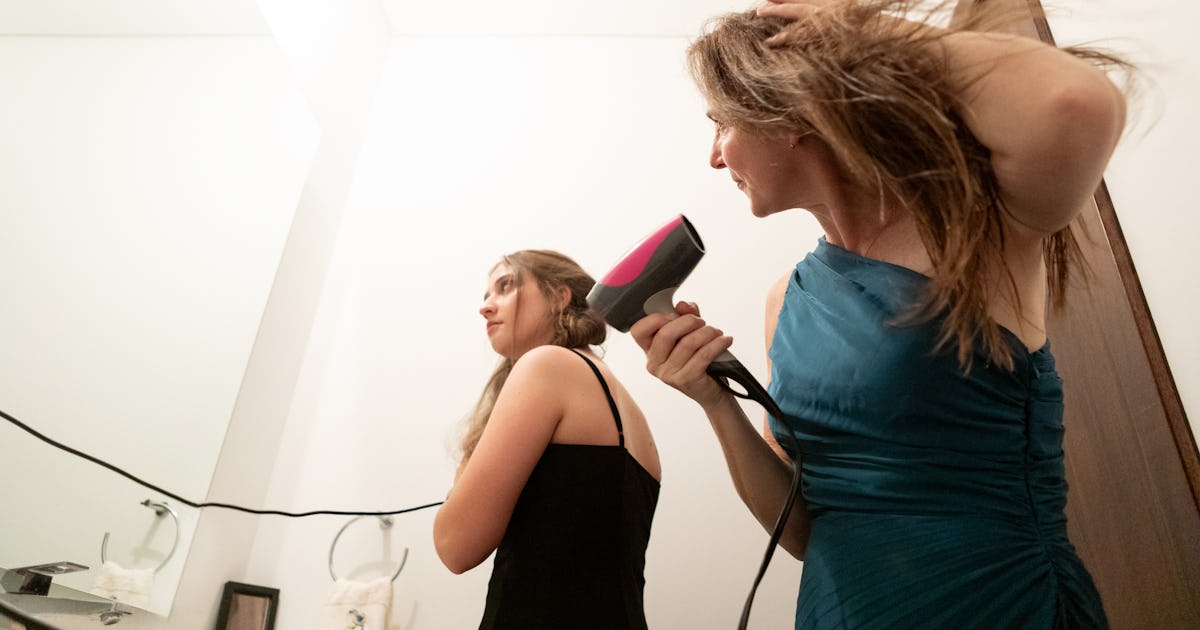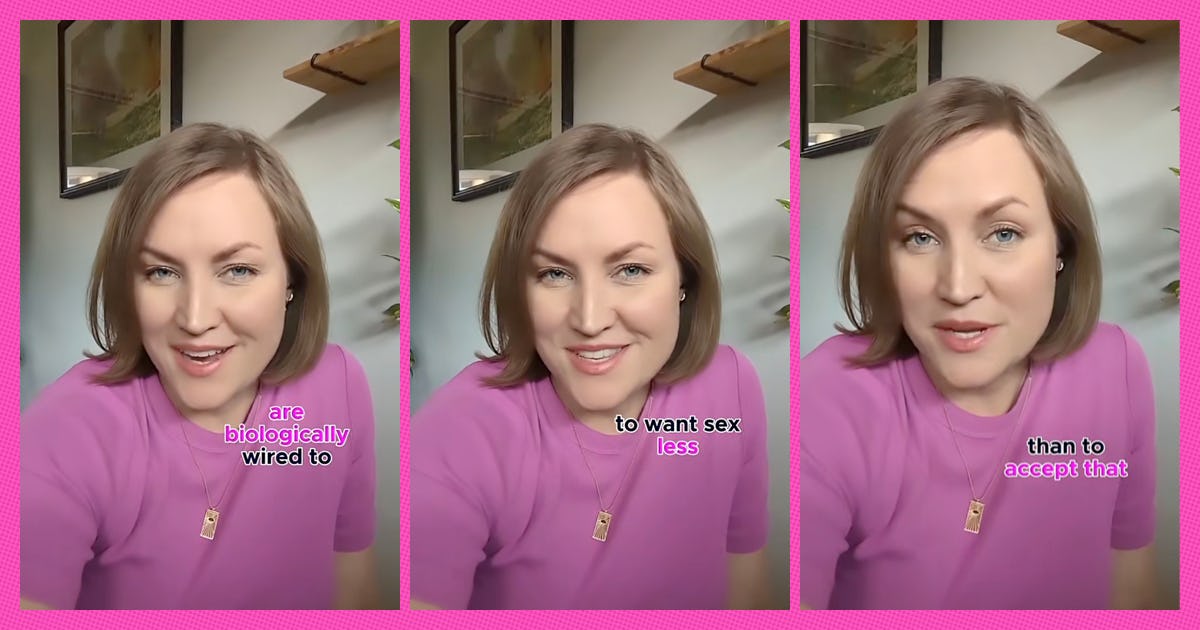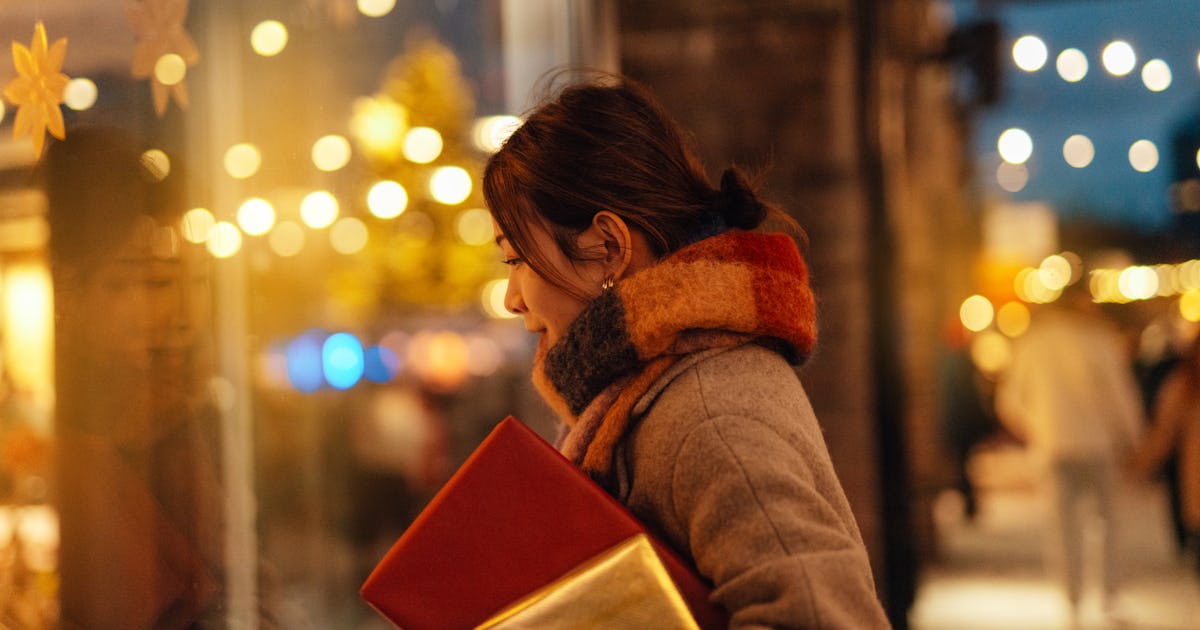One morning not long ago, I walked into the bathroom and noticed a used tampon applicator clearly visible on top of the trash in the trash can. Breathing heavily and my cheeks flushed, I pulled a few pieces of toilet paper from the roll, wrapped it up like a miniature mummy, and stuffed it deep into the trash can. I was instantly transported back to my 12-year-old self, when I was new to menstruation and ashamed of every aspect of it. I was determined to never let anyone know I was bleeding, especially my brothers, with whom I shared a bathroom.
Now I am almost 40 years old and have a daughter who has just started menstruating. Hadn’t anyone taught her to hide all evidence of her period?
This isn’t the first time I’ve entered a teenage body as a mother, either. Each stage of my daughter’s childhood opened a door that took me back to that period in my life.
Including – and especially – adolescence and its indignities. Not just because of years of going back and forth between which parent she resembled most, but my daughter’s changing body brought us closer to twins. But also because it took me back to middle school: my unfortunate perm, T-zone as greasy as cafeteria pizza, hormones coursing through a new body I already hated, and my mind focused on unrequited love.
A few months ago, I went out to buy tampons with my oldest daughter, who hadn’t even gotten her period yet. We sat on her bed together and turned one on so I could demonstrate how it worked.
It’s kind of a shame to think that when I was in school no one taught me how to use a tampon, or how often to change it, or how to use any of it. My mom grew up with four sisters, and she probably underestimated how much a girl needs from her mother in that regard. After all, I realized I needed tampons when I overheard her talking to my aunt, telling her that she didn’t understand why I didn’t use tampons.
Even though no one said it, I understood that my period was something embarrassing, something that needed to be hidden. I practiced sliding my wrapped pads in and out of my jeans pockets alone in my room so I could do it in science class without anyone noticing. I practiced stuffing used tampons under the other trash in the trash can.
It felt like a personal affront to me that my daughter was dealing with her period so shamelessly and so openly.
Teenage girls often begin to transform into their mothers. That was true for me and my mom, and now, it’s true for me and my daughters. Looking at my oldest, I realized I had remembered correctly. I literally went from flat chested to a B cup overnight, hopscotching beyond any need for a training bra.
Just like my period, from the time my mom bought me the first Playtex bra at the mall and it was unceremoniously delivered to my bed one afternoon, I internalized the idea that a bra should be as long as possible Near invisible. My number one goal was to never let anyone see my bra, and I developed an elaborate routine for taking it off under my shirt for sleepovers or changing shirts during gym class without revealing anything. cloth.
In my mind, not talking about puberty was better than my mother giving me my first razor, a pink daisy, after I told her that some girls in my grade were shaving their legs. She had wrapped it as a birthday present, and the humiliation of unwrapping something so intimate in front of the entire family was almost unbearable. Didn’t feel like I needed anything. Going through these stages with my daughter reminds me of all the things my mother did and didn’t do, said and didn’t say.
In raising my own daughters, I worked hard to correct mistakes, welcome questions, and always answer them as truthfully as possible. Now I think about how to talk to her about the wrong applicator. I thought maybe I could demonstrate the way I usually tuck them back into the wrapper and then hide the wrapper itself with toilet paper.
But the more I struggled with the issue, the more I understood that her openness about menstruation meant that no one had yet made her feel ashamed of it. perhaps I Be the one who needs to talk about why periods are a completely normal part of life for women, and how there’s no need to hide their existence from the people who love you.
The next time I saw a tampon on top of the trash can, I left it there. I forced myself to face the shame of my presence, telling myself that it was my responsibility, not to be passed on to the next generation.
Traumatic memories aside, I am grateful for this stage of my life. My daughters have the same body as mine, which is not a bad thing. Watching their bodies grow, change, and take the same shape as mine helped me appreciate the special contours of my body in a way I never had before. I never imagined how watching my girls grow up would heal many of my long-held insecurities about how I looked all wrong—my belly was too round, my thighs were too wide, I The arms are too loose. All three of us are genetically coded to look exactly like us.
I gave my body to my daughters and they are helping me learn to love it. And, every once in a while, I’ll even feel shameless and leave the tampon applicator – complete with packaging – on top of the trash can.
sherryman is a writer and editor who lives in Columbus, Ohio, with her husband and two daughters. She writes about food, motherhood, and sobriety. You can find her here and follow her on Instagram.




